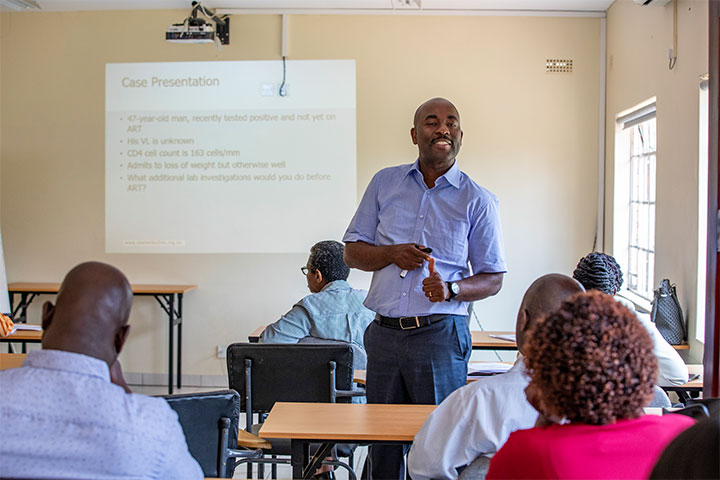After the last Covid-19 restrictions were lifted at the end of January, the training centre was again able to run all courses without hindrance. Over 200 people took part in our two-week course on HIV Management and 100 doctors in our one-week course. That brings the training centre back closer to pre-pandemic numbers. It also kept collaborating with the hospital in Chitungwiza, training over 100 of their health workers.
Decentralised transfer of knowledge
Training in the provinces and districts of Zimbabwe is becoming increasingly important. Hospitals far from the capital, however, still lack a lot of know-how when it comes to treating people with HIV/AIDS. Sometimes our team drives long hours to conduct these courses. A big advantage of these trainings is that our team can adapt the course material to local circumstances and available resources. We run the decentralised courses in close cooperation with the Zimbabwean Ministry of Health and Child Care, which last year assigned us another district for the training of health workers.
Building an e-learning platform
The training centre’s online courses are particularly well attended and valued. Over 300 people took part in a course online. However, unstable network connections continue to be a major challenge. The training team is therefore working on an e-learning platform to be launched in 2023. This will allow participants to manage their own time and work through the course material when they have a stable network connection. This will enable even more health professionals to benefit from our courses on HIV.
Annual Report: Training where it’s urgently needed


